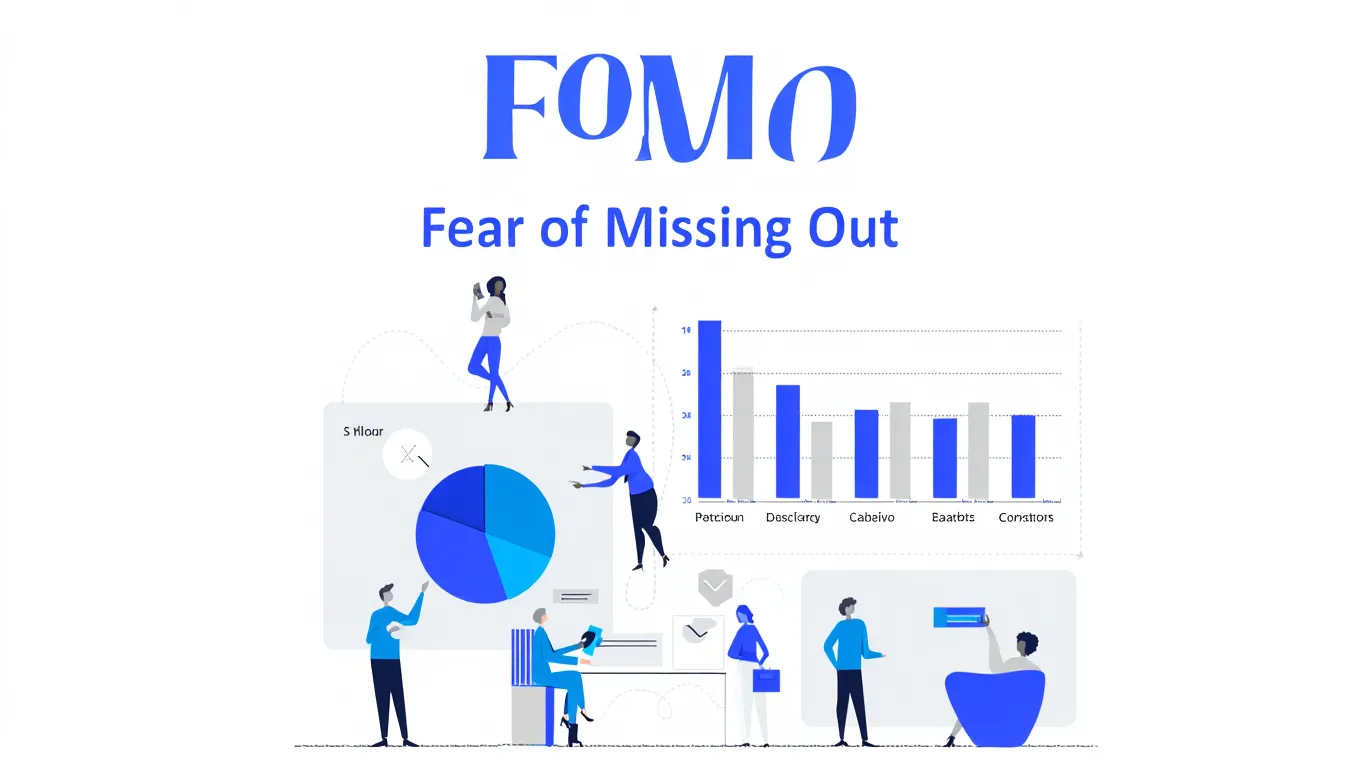Aug 31, 16:55 • 10 min. read
Goodbye, buyer's remorse! 4 ways to escape the FOMO culture

In an era where technology and psychological marketing intersect, the pressure to make purchases has become almost a daily experience — especially in the Gulf region, which is undergoing both an economic and media boom. The term "buyer's remorse" has become part of everyday vocabulary, describing the moment you realize you've spent money on something you didn't truly need. The revailing culture, driven by the Fear Of Missing Out (FOMO), is increasingly influencing people's financial decisions.
This article presents four practical, proven strategies to help you regain control over your money and emotions and break free from the trap of emotional spending.
Method 1: Let reason guide your purchases, not emotion
1.1 Understanding buyer's remorse
Buyer's remorse often stems from emotional decisions made without sufficient analysis. According to a 2022 Gallup study, 68% of global consumers experience regret within 24 to 48 hours after making a purchase.
1.2 Effective strategies
- The 24-Hour pause: Give yourself time to reflect before making any decision.
- Mental evaluation: Ask yourself—Will I still be happy with this purchase in a month? Six months? A year?
- The 10/10/10 rule: How will I feel about this purchase in 10 minutes, 10 months, and 10 years?
1.3 Real-Life example
Reem from Kuwait used to impulsively buy luxury cosmetics. After applying the 10/10/10 rule, she began evaluating purchases with a long-term mindset and reduced her expenses by 35% in six months.
1.4 Psychological analysis
Behavioral psychology suggests that humans tend to seek immediate rewards even if they lack long-term value. That's why financial awareness is crucial for self-discipline.
Method 2: A flexible budget is a tool for freedom, not restriction
2.1 A new perspective on budgeting
Budgeting is not about deprivation—it's a smart map for managing your income and achieving your goals. Create a budget that reflects your real priorities and gives you the freedom to make informed financial decisions.
2.2 Steps to create a budget
- Review your expenses over the past 90 days.
- Categorize your spending: Essential, Optional, Recreational, Long-Term.
- Allocate at least 20% for savings.
- Use apps like YNAB or Spendee.
2.3 Gulf study
According to the GCC Statistical Center (2023), individuals who maintain a monthly budget are 47% less likely to incur random debt compared to those who don't plan financially.
2.4 Example
Abdulaziz from Bahrain used Excel to track his income and expenses. Within one year, he saved the equivalent of two months' salary, allowing him to pay for graduate school without needing a loan.
Method 3: Separate self-image from consumerism
3.1 The role of social media
Platforms like Instagram and Snapchat promote constant comparisons, leading to feelings of inadequacy and unnecessary spending to keep up with others.
3.2 Escape tools
- Try a "No-Buy Month" challenge.
- Delete apps that encourage spending.
- Limit social media use with tools like Freedom or FocusMe.
3.3 Gulf Example
Jaber from the UAE deactivated his Instagram account for three months and participated in a "Use What You Have" challenge. He cut his expenses by 60% and felt a greater sense of self-satisfaction.
3.4 Psychological insight
According to Harvard Business Review, spending aimed at boosting self-image often leads to anxiety and chronic depression due to the stress of constant comparison.
Method 4: Build and reinforce financial awareness
4.1 What is Financial Awareness?
It's not just about numbers—it includes behaviors and beliefs about money. It involves understanding budgeting, the art of saving, managing debt, and investment basics.
4.2 Education tools
- Free short courses on Coursera and FutureLearn.
- The book Your Money or Your Life.
- The "Gulf Financial Awareness" podcast.
4.3 Gulf platforms
- Rwaq: Offers free financial planning courses.
- Saudi Ministry of Finance: Tools like the "Mezanak" financial planning app.
- Oman Development Bank: Virtual financial workshops for beginners.
4.4 Inspiring story
Noora, a university student from Qatar, took a budgeting course on Rwaq. After a year of practice, she became responsible for the family budget duringher parents' travel.
4.5 Measurable impact
According to a 2024 Coursera survey, 75% of participants in financial education programs reported improved financial behaviors, and buyer's remorse incidents dropped by 42%.
Conclusion
Escaping the FOMO culture isn't a one-time decision — it's a journey that begins with awareness and is sustained through daily practice. When you realize that value comes not from what you buy but from what you retain, you’ll start making more balanced financial choices. Financial freedom begins with one small step: saying “No” to pressure and “Yes” to what truly suits you.
Start today. You control your money — not their ads.
References
Gallup – Buyer Behavior Research 2022
Harvard Business Review – The Psychology of Consumerism
GCC Statistical Center – Financial Culture 2023
Coursera – Financial Wellness Surveys 2024
FutureLearn.org – Free Financial Courses
Saudi Ministry of Finance – Mezanak App
Gulf Financial Awareness Podcast
Rwaq Platform
Freedom App – Time Management Tools
Your Money or Your Life – Vicki Robin